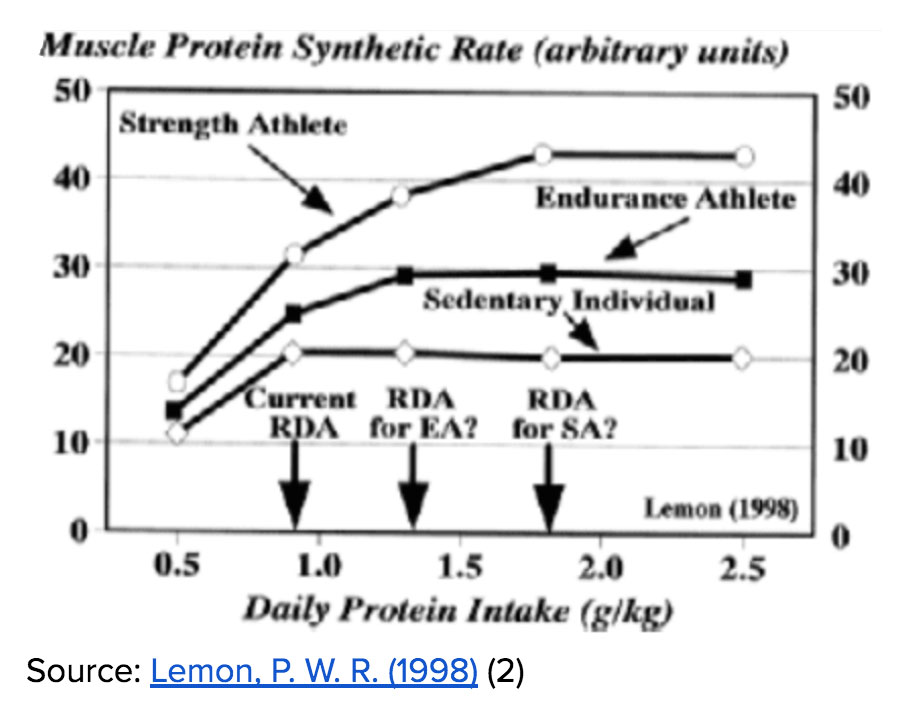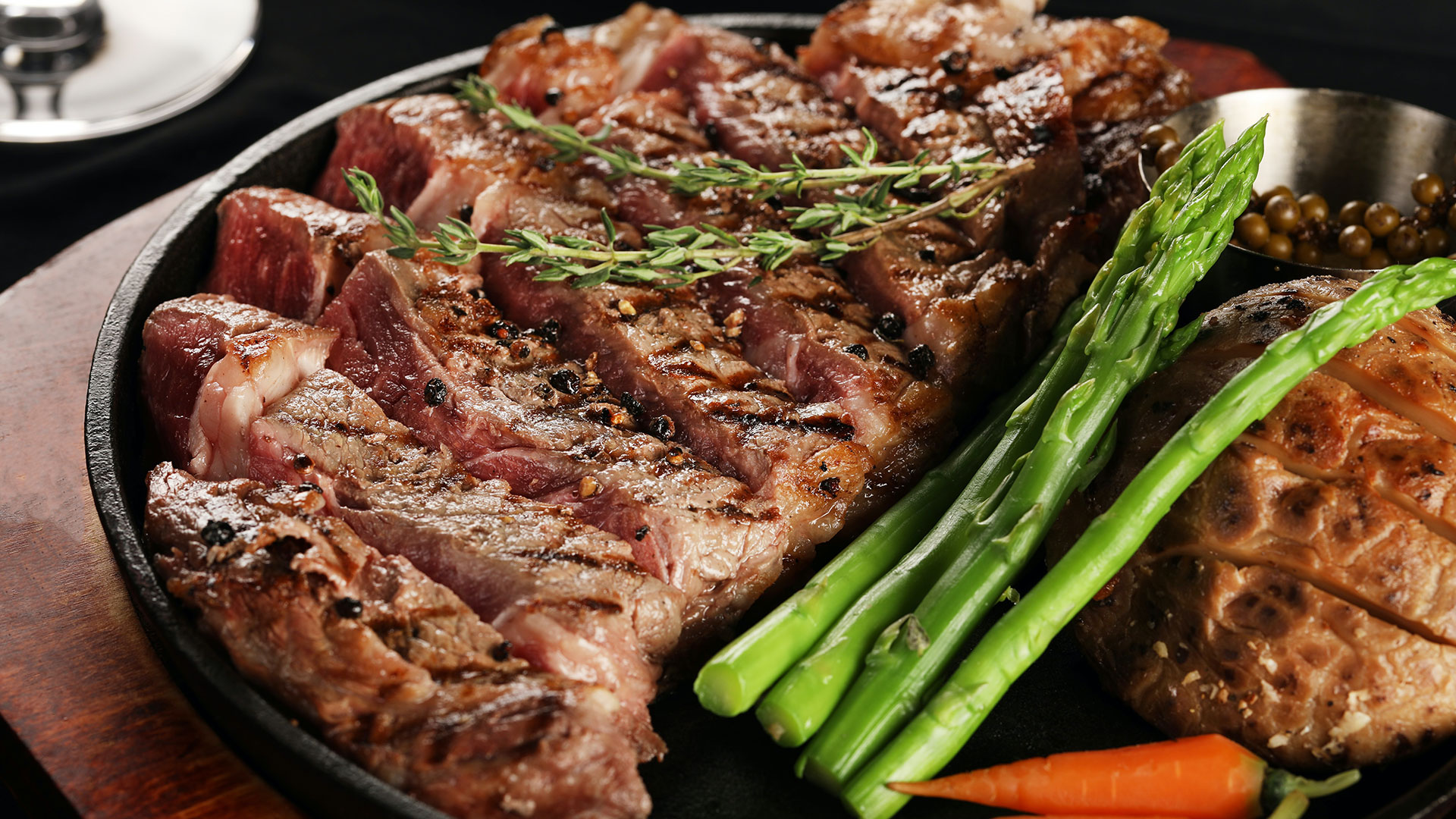If you’ve ever been on a quest to lose body fat or build muscle, chances are your coach has emphasised protein ad nauseam. Why? What’s the big deal? What’s wrong with your toast and fruit for breakfast? Especially with the growing vegan sustainability movement, you may question whether it’s worthwhile. Seems like a lot of animal-product to consume.
Time to clean up the confusion and bring some light to protein and its benefits.
What Is Protein?
In a nutshell, proteins are responsible for most bodily functions throughout the entire human body. They are made up of amino acids. Some of these are called ‘essential amino acids’, meaning your body can’t produce them, so you have to consume them through diet. Let that sink in – inadequate intake of essential amino acids is no bueno.
What matters for this discussion is the role that amino acids have as building blocks to produce new tissues in your body, in particular muscle mass. Throughout the day, and depending on your activity/training, protein is either being broken down or synthesized (i.e built up). Whether your body has built up more protein than it has broken down is determined by net protein balance:
Net Protein Balance = Protein Synthesis – Protein Breakdown
Dietary protein is the body’s main source of amino acids. An insufficiency of dietary protein makes it impossible to be in a state of positive protein balance. Your body will simply break down some of its own body proteins in one location (think muscle) to build proteins in another.
How Much Protein Do I Really Need?
Stemming from bodybuilding folklore, it was often suggested for those who did strength-based training with the aim of building muscle, that they consume at least 2.2g of protein per kg of body weight per day (g/kg/d). That would be a lot of protein for most – it’s likely you’d find it uncomfortable eating that quantity of protein. Fortunately, with the benefit of more scientific research, it’s clear that 1.8 g of protein per kg of body weight per day (g/kg/d) is the upper limit at which protein intake benefits body composition (1). This amount is for resistance training individuals. Your needs could be lower based on your activity type:

As the graph shows, strength training athletes have the highest protein needs (yes that includes you, if you’re training with weights within a well-designed program). If you’re not stimulating much muscle growth with your training, as is the case with endurance training (and more so for sedentary individuals) you don’t need as much protein.
Note that this is total daily protein intake from all sources (animal and plant-based). You may find that it’s actually not that much animal protein, especially if your diet is mostly whole-food based. For instance, the protein contained in the copious amount of vegetables you should be eating all adds up. I personally need to proactively reduce the amount of animal protein I would ordinarily eat to precisely meet my optimal intake.
Takeaway: now that you understand why you need protein and how much (1.8g/kg/day if strength training), use an app like MyFitnessPal or Cronometer to assess how this translates into actual food requirements.
Higher Protein Diets Can Promote Fat Loss
You hopefully now understand how important protein is, and how much you should potentially consume to optimise your training goals. The benefits for building muscle tissue are clear, and though not the focus of this article, it’s worth mentioning other critical roles for protein, including cell signalling; bone health; glucose regulation and gastrointestinal function.
What we really want to know, is how does protein help with fat loss? There are 3 ways this can happen (3):
- Muscle growth. Sufficient protein intake contributes to more muscle growth. This is an energy-intensive process. Increasing energy expenditure contributes to fat loss by inducing a higher caloric deficit.
- The thermic effect of food (TEF). Protein has a higher TEF than carbohydrates and fats, and thus your body burns more calories when digesting it. This again equates to higher energy expenditure and greater fat loss. For a reminder on energy expenditure and TEF, see this article.
- Satiety, which is feeling full. Protein is more filling than either carbs or fats (in isolation).
If you’ve been struggling with weight loss and have no idea where to begin with food, you have much to gain by simply using these guidelines to optimise your protein intake.
About the author
Cymron Bancil
After years juggling a senior banking career with my passion for fitness, I left finance to help busy professionals transform their bodies inside and out. As an online coach, I use a science-based approach to get you the lean, healthy physique you deserve.
Get my top research-led and results proven tips delivered right to your inbox via my free newsletter HERE.
References
- Phillips, S. M., & van Loon, L. J. C. (2011). Dietary protein for athletes: From requirements to optimum adaptation. Journal of Sports Sciences, 29(SUPPL. 1)
- Lemon, P. W. R. (1998). Effects of exercise on dietary protein requirements. International Journal of Sport Nutrition and Exercise Metabolism, 8(4), 426–447
- Thomas L. Halton & Frank B. Hu (2004) The Effects of High Protein Diets on Thermogenesis, Satiety and Weight Loss: A Critical Review, Journal of the American College of Nutrition, 23:5, 373-385


